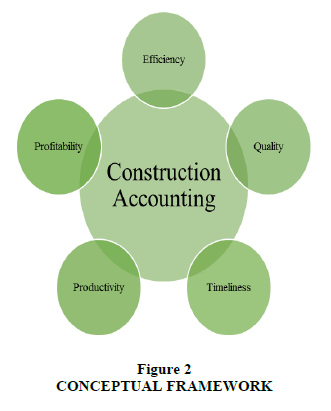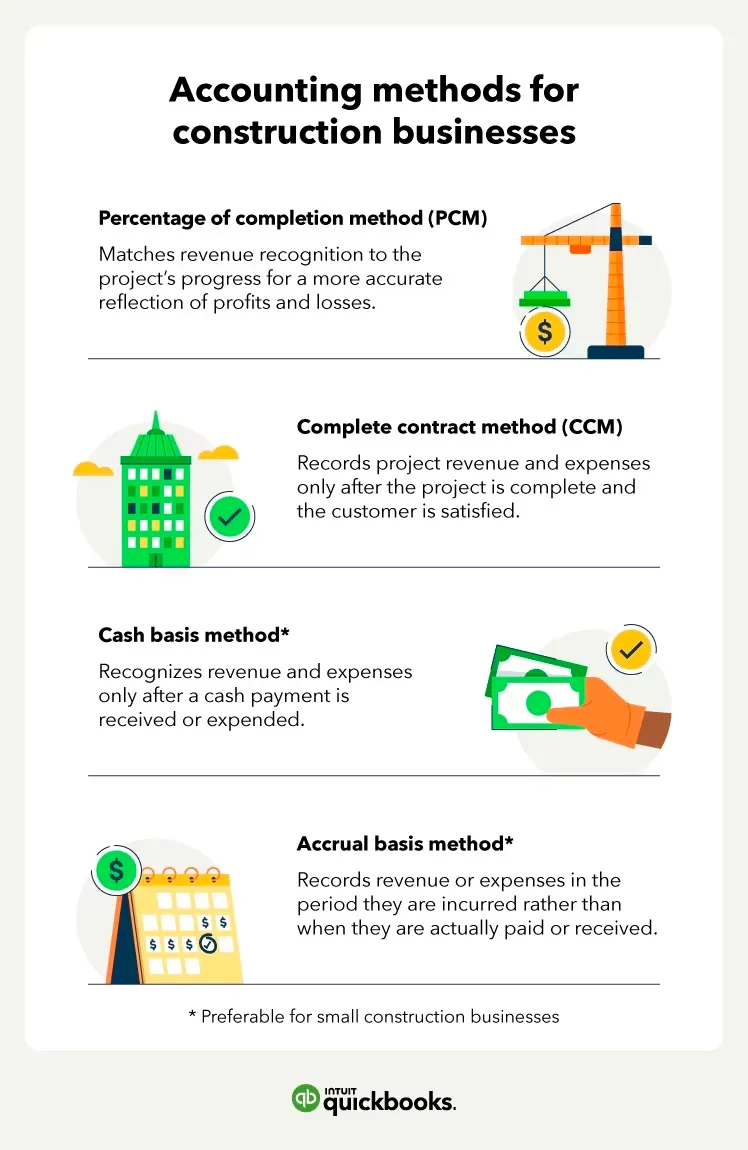Construction Accounting: How to Maintain Accurate Records and Improve Cash Flow
Construction Accounting: How to Maintain Accurate Records and Improve Cash Flow
Blog Article
Trick Services Offered in Building Audit to Boost Financial Oversight
In the realm of building and construction accounting, vital solutions such as project price evaluation, budget plan management, and cash money circulation analysis play a critical duty in improving monetary oversight. Understanding these subtleties can dramatically affect the efficiency of economic oversight in building jobs.
Project Cost Estimation
Reliable job cost evaluation is an essential component of successful construction audit solutions, as it directly influences budgeting and monetary preparation (construction accounting). Accurate cost estimates give an extensive overview of the economic demands for a building task, making it possible for stakeholders to make informed choices concerning resource allotment and job feasibility
A comprehensive cost estimate process includes various aspects, consisting of labor, products, equipment, expenses, and contingencies. By evaluating historical data and current market fads, building and construction accounting professionals can establish realistic estimates that reflect true project prices. This analytical approach not only help in protecting financing but likewise enhances openness and responsibility among all events included.
In addition, exact cost estimate offers as a foundation for monitoring and regulating costs throughout the task's lifecycle. By establishing a clear standard, building and construction accountants can identify discrepancies between approximated and actual costs, enabling for prompt changes and interventions.
Inevitably, effective project cost estimate not just facilitates smoother project implementation however additionally reinforces the overall monetary wellness of building and construction businesses, ensuring they continue to be affordable in an increasingly vibrant market. This critical strategy underscores the relevance of experienced professionals in supplying accurate and dependable cost quotes.
Budget Plan Administration
In the realm of building and construction accounting solutions, budget plan management plays a crucial duty in making certain that jobs stay financially sensible and on the right track. Efficient spending plan administration involves the methodical preparation, tracking, and managing of task expenses to align with economic purposes. It starts with the development of an in-depth spending plan that precisely shows the awaited prices of labor, products, tools, and overhead based on detailed task price evaluation.
As soon as the budget plan is developed, recurring monitoring is crucial. This includes routine analyses of actual expenditures against the budgeted figures, allowing for timely identification of discrepancies. By executing tools and software application tailored for building audit, task managers can produce real-time reports that assist in notified decision-making.
Additionally, proactive budget administration allows stakeholders to readjust monetary allowances and resources as essential, promoting adaptability in feedback to unanticipated difficulties. This versatility is critical in the building sector, where job scopes can regularly change. Ultimately, durable budget plan monitoring not just boosts economic liability however additionally improves total project efficiency, guaranteeing effective completion within the alloted financial criteria.
Cash Money Circulation Evaluation
Cash money flow evaluation acts as a critical element of building audit, enabling project managers to preserve a clear understanding of the inflow and outflow of funds throughout the job lifecycle. This analytical procedure permits the identification of possible cash money lacks or excess, encouraging supervisors to make enlightened choices regarding budgeting and source appropriation.
By diligently tracking cash money inflows from customer settlements, fundings, and other profits resources, together with checking discharges such as labor, materials, and overhead costs, project managers can develop a comprehensive capital projection - construction accounting. This projection not just help in forecasting future monetary positions yet likewise assists in determining fads that may influence job viability
Regular capital analysis promotes timely treatments, permitting project managers to address monetary obstacles before they rise. This proactive strategy can reduce threats related to postponed repayments or unanticipated expenditures, ultimately bring about more successful task conclusions. In addition, reliable capital administration adds to maintaining strong partnerships with subcontractors and distributors by ensuring timely payments.
In significance, capital analysis is an indispensable tool in building and construction accountancy, driving financial security and functional effectiveness throughout the period of building and construction projects.
Regulatory Conformity Assistance
Regulatory conformity assistance is necessary for construction companies browsing the facility landscape of market policies and requirements. The building market goes through a myriad of regional, state, and federal guidelines, consisting of safety and security requirements, labor laws, and ecological guidelines. Non-compliance can lead to substantial fines, delays, and reputational damage.
A durable conformity support group aids companies remain informed concerning relevant regulations and makes certain that they apply required plans and procedures. This includes tracking changes in legislation, giving training for employees, and carrying out normal audits to evaluate conformity levels. Building accounting professionals play an important function in this process, offering competence to analyze laws and line up monetary methods appropriately.
Moreover, regulatory conformity support incorporates the preparation and submission of called for paperwork, such as tax filings and reporting for labor criteria. By establishing a positive conformity strategy, building and construction firms can minimize threats related to non-compliance, boost functional effectiveness, and promote a culture of liability.
Inevitably, effective regulatory conformity support not just safeguards a construction firm's monetary health and wellness yet also enhances its track record in the market, placing it for lasting development and success.

Financial Reporting and Insights
While browsing the intricacies of the building and construction market, accurate financial coverage and insightful evaluation are critical for notified decision-making. Construction tasks typically include significant capital expense and varying prices, making it crucial for stakeholders to have accessibility to timely and clear monetary information. Detailed financial reports, consisting of revenue and loss declarations, cash circulation projections, and annual report, give a snapshot of a business's financial health Web Site and wellness and efficiency.
Moreover, tailored insights obtained from these records help supervisors recognize trends, examine task profitability, and make calculated changes to improve functional efficiency. Key efficiency signs (KPIs) details to construction-- such as project margins, labor costs, and above ratios-- provide useful criteria for reviewing success and projecting future efficiency.
Furthermore, routine economic coverage enables conformity with legal responsibilities and promotes transparency with investors and stakeholders. By leveraging sophisticated accounting software program and information analytics, building and construction companies can boost their economic oversight, enabling Discover More Here them to navigate uncertainties better. Ultimately, durable monetary coverage and workable understandings equip building companies to make educated decisions that advertise growth and sustainability in a very open market.
Conclusion

In the world of building and construction find out this here bookkeeping, crucial services such as task price evaluation, budget administration, and money circulation evaluation play an essential function in boosting monetary oversight. Inevitably, durable budget monitoring not just bolsters monetary responsibility yet also improves total project efficiency, making certain effective completion within the assigned monetary specifications.

Report this page